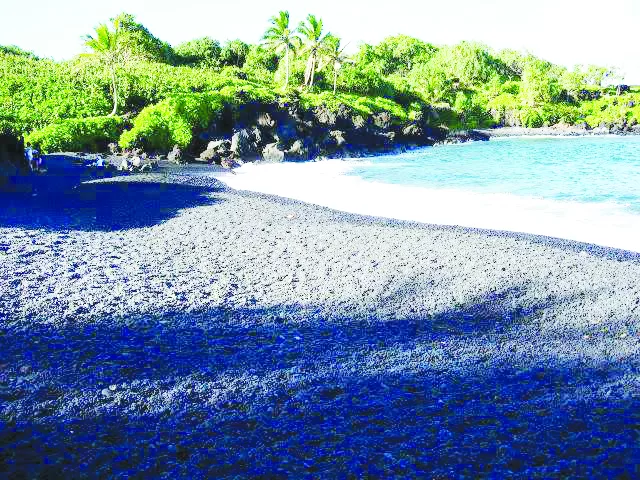Huge reserves of mineral-rich black sands present Egypt with an opportunity not to be passed up.
Recently, Minister of Trade and Industry Ahmed Samir met with Dr. Patrick Jean Gilbert, Regional Representative of the United Nations Industrial Development Organisation (UNIDO) in Egypt to benefit from the organisation’s expertise in black sand manufacturing projects in Egypt
The minister said black sand represents a huge manufacturing revolution once it is extracted and its components are separated, as it is used in various strategic industries, including aircraft, equipment and electronic semiconductors.
According to an aerial survey carried out by the Nuclear Materials Authority, Egypt has 11 sites of black sand along the northern coast. Studies have revealed that the geological reserve of those sands on the Egyptian coast reaches 1.3 billion cubic metres, including Rasheed area, with reserves of 600 million cubic metres, Damietta area with a reserve of 300 million cubic metres, and Arish-Rafah area with 200 million cubic metres. The black sands in these areas contains eight types of heavy metals.
In recent years, the state has taken serious steps for optimising the use of black sands in vital industries that can boost economic growth.
In October 2022, President Abdel Fattah El Sisi inaugurated a complex for the industrial concentration and separation of heavy metals extracted from black sand at in Borollos city in Kafr el-Sheikh Governorate. The LE4 billion project is implemented by the Egyptian Black Sand Company (EBSC),
Under the umbrella of the Armed Forces National Service Project Organisation, the EBSC was founded in 2016 as part of government plans to maximise the use of all natural resources.
Atef el-Dardiri, former chairman of the Egyptian Geological Survey Association said: “The black sand extraction project could provide cheap raw materials for local industry.
El-Dardiri, himself a mining expert, told this newspaper that Egyptian black sand contains zircon, granite and titanium.
“Titanium is used for the manufacture of aircraft engines, plastics, rubber, cosmetics and leather,” el- Dardiri said.
“Zircon is used in ceramics, nuclear reactors and car engines. Granite is used to make aircraft parts, paints and water filters.”
He added that many ceramics companies import zircon, but extracting it will meet the needs of these companies and will benefit the economy by saving import costs.
“Sourcing black sand minerals locally will not only provide manufacturers with local substitutes to imported raw materials, but will also create new export opportunities,” he said.
He also added that black sands manufacturing projects help mobilise a substantial workforce and decrease the strain on the country’s coastal environment by reducing the harmful effects of radioactive minerals.
“Some 5.5 million tonnes of minerals can be extracted from the area around Borollos in Kafr el-Sheikh and this can breathe life into industries,” he said.
“The extraction of heavy metals from black sands is expected to transform the North Delta, especially Kafr el-Sheikh, into a huge investment area and bring real development to the whole country.”






Discussion about this post